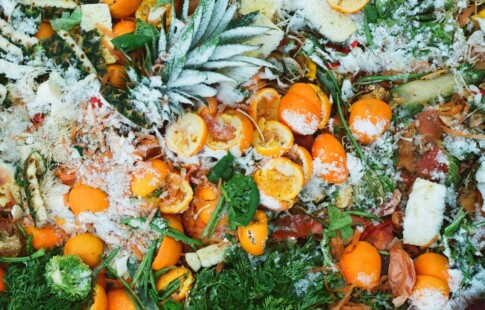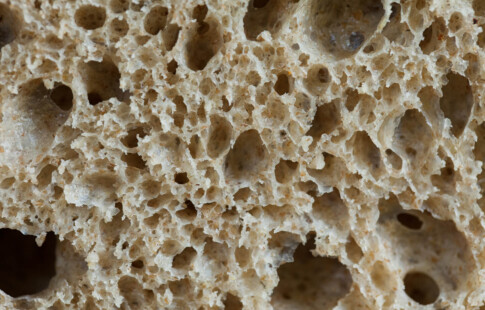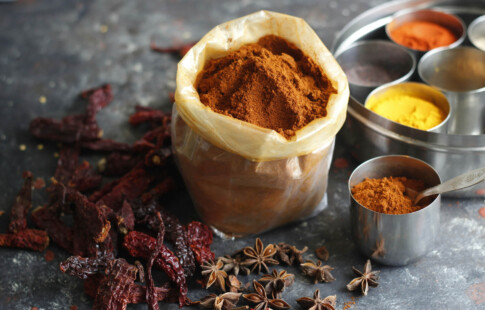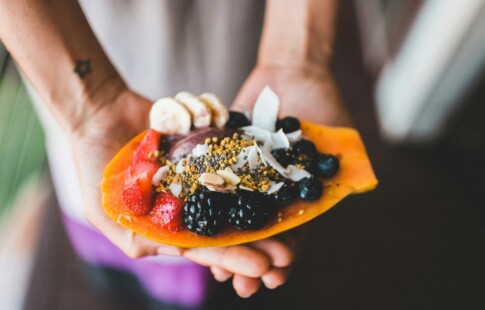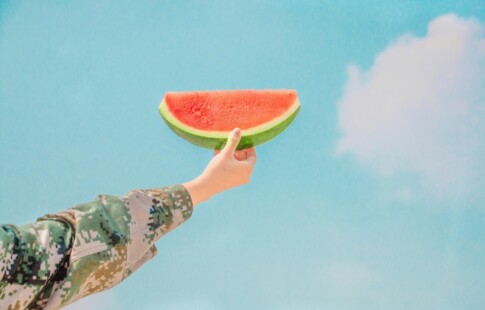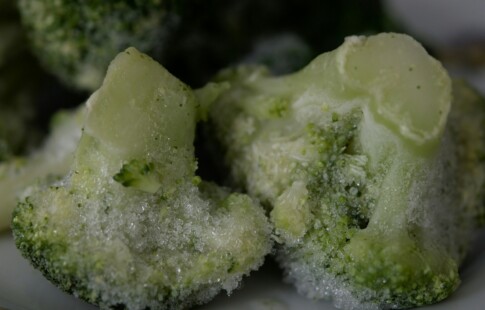
6 Tips for a Healthy Vegetarian Pregnancy
We are reader-supported. When you buy through links on our site, we may earn affiliate commission.
Cutting back on meat consumption has decided environmental benefits. Meat production accounts for nearly 15% of global greenhouse gas emissions, with dairy, beef and pork making up the bulk of the damage. However, you may have wondered if it’s possible — and healthy — to have a vegetarian pregnancy.
Fortunately, your current lifestyle is perfectly compatible with having a baby, as long as you get the right blend of essential nutrients to support new life. You might even have a slight advantage, as you’re probably already accustomed to considering your meal choices more carefully. How can you nurture yourself during this time while adhering to your green ideals? Here are six tips for a healthy vegetarian pregnancy.
Is It Healthy to Be a Vegetarian During Pregnancy?
It’s perfectly healthy to be vegetarian during pregnancy — or anytime. There are several spins on this diet, but each confers considerable benefits:
- Flexitarians: Include a little chicken and fish. Some rarely indulge in red meat, but many stop at poultry.
- Pescatarians: These vegetarians eat fish and seafood.
- Lacto-ovo vegetarians: These folks stay plant-based but consume animal-derived products like milk and eggs.
- Vegans: These eschew all animal products, often refusing to buy leather belts or shoes in addition to their dining choices.
You’ll notice parallels when reading other articles about vegetarian and pregnancy nutrition. You essentially need to focus on getting the same nutrients in both circumstances. The only difference is during pregnancy, you might need an extra boost to provide additional support to nurture fetal development.
Why do people choose these diets? Many do it for various reasons, including protecting the planet and animal welfare. However, vegetarian diets deliver health benefits, including lower risks of:
- Obesity
- Heart disease
- High blood pressure
- Type 2 diabetes
- Some forms of cancer
1. The Biggest Risks of Being a Vegetarian During Pregnancy
The greatest risk to a vegetarian pregnancy is not getting sufficient levels of specific nutrients the fetus needs to grow and develop. Here, too, those who choose cruelty-free eating might have an advantage. Why?
One of the most crucial nutrients you need during pregnancy is folate to prevent neural tube defects. The best sources of this nutrient are deep, leafy greens, nuts, beans and whole grains, foods that many vegetarians already eat in sufficient amounts. However, it’s still wise to take a prenatal vitamin per your obstetrician’s recommendation.
2. What Nutrients Should You Get More of for a Healthy Vegetarian Pregnancy?
The following nutrients are crucial to a vegetarian pregnancy:
- Folate: For preventing neural tube defects.
- Protein: Vegans have the toughest time consuming enough of this nutrient.
- Iron: The average pregnant person requires double the iron of someone who is not.
- Omega-3s: Crucial for heart and brain development.
- Vitamin B12: Another one that’s tough for vegans, although nutritional yeast and fortified foods offer options.
- Vitamin D: Pregnant persons need about ⅓ more of this nutrient, and you can’t count on the sun if you live above 37 degrees parallel.
- Iodine: Necessary for healthy thyroid functioning in the mother and her fetus. Insufficient iodine during pregnancy is associated with lower IQ in the child.
6 Tips for a Healthy Vegetarian Pregnancy
If you want to ensure the healthiest vegetarian pregnancy, the following six tips can help you meet your nutritional needs while maintaining your commitment to environmental sustainability.
1. Watch Your Fish
Pescatarians have little trouble getting sufficient protein and omega-3 fatty acids, but there’s a catch. The mercury levels in some fish can cause brain damage, hearing and vision loss in the unborn. You should stay away from the following species:
- Shark
- Swordfish
- King Mackerel
- Tilefish
What species of fish are best for vegetarian pregnancies? In general, the smaller the fish, the lower the mercury concentration. Add the following species to your menu:
- Shellfish
- Flounder
- Sole
- Haddock
- Pollack
- Trout
- Light tuna — chunk light is better than albacore as it comes from a smaller fish.
2. Ensure Sufficient Folate Intake
Even though you have a slight advantage here as a vegetarian, please don’t rest on your laurels. It’s hard to get sufficient folate to support pregnancy through food alone, so consider a supplement. Begin taking it at least a month before conceiving and for the first 12 weeks of gestation.
That said, it wouldn’t hurt to double down on deep, leafy greens, nuts, seeds, beans and whole grains. These healthy plant-based foods are low in calories, high in fiber and rich in various phytonutrients that play many, some yet-undiscovered roles in nurturing fetal health.
3. Eat the Rainbow
Mother Nature, in her infinite wisdom, provided humans with a handy color code. The various hues in plant-based foods correlate to different nutrient profiles. By getting at least three colors on your plate and eating the rainbow, you ensure sufficient intake of the full array of substances needed for health.
4. Get Plenty of Plant-Based Protein
You can have a healthy vegan pregnancy when you get plenty of plant-based protein and take a supplement to address nutrient deficiencies. Plant-based protein is often leaner but may not contain all nine essential amino acids your body must get from food. The following plant-based foods come close, so add them to your diet:
- Quinoa
- Amaranth
- Tofu
- Tempeh
- Buckwheat
- Spirulina
- Hemp seeds
- Chia seeds
- Nutritional yeast
Nutritional yeast is a crucial supplement for vegetarian pregnancies if you fall on the vegan end of the continuum. It’s not just for protein. Vitamin B12 is another nutrient vegans struggle to get, as it typically occurs in animal-based foods. Nutritional yeast offers your best replacement.
5. Follow Your Doctor Regarding Supplements
Having medical care during pregnancy is crucial. Even if you lack insurance, nearly every state has programs for expectant mothers to get care, although the length of coverage varies.
Once you get an obstetrician, follow their advice regarding supplements. While you should take a prenatal vitamin containing the essentials, they can counsel you on how your diet affects pregnancy and advise you of any additional needs.
6. Have an Extra Helping of Key Nutrients
Even with a supplement, it helps to have an extra helping of foods high in the specific nutrients necessary to support a vegetarian pregnancy.
- Protein: Nuts, beans, lentils, nut butter, eggs, cheese
- Calcium: Dairy products, soy, beans, peas, lentils, almonds, seeds, broccoli, kale, bok choy
- Iron: Lentils, chickpeas, beans, tofu, chia seeds, hemp seeds, dried apricots, figs, raisins and fortified cereals.
- Omega-3s: Fish, flaxseeds, chia seeds, hemp seeds, brussels sprouts, walnuts.
- Zinc: Beans, chickpeas, lentils, nuts and seeds.
- Iodine: Seaweed, strawberries, potatoes with skin, green beans, spring greens, watercress, whole grains.
- Vitamin B12: Nutritional yeast, some green tea grown in fish bone fertilizer containing the nutrient (can be problematic for vegans).
3 Smart Vegetarian Pregnancy Snacks
Want some quick, healthy snacks to support your vegetarian pregnancy? Here are 3 healthy ideas:
1. Ants on a Log
Bring back the kindergarten classic, as you’ll be making it for your baby soon enough. Coat a bit of celery with nut butter and add dried fruit to the top for a sweet and savory healthy treat high in protein and phytonutrients.
2. Crudites and Hummus
Crudites sound fancy but are nothing more than crunchy veggies like carrots, broccoli and cauliflower. Dip them in hummus to get the protein, iron and zinc from ground chickpeas.
3. Vegan Protein Balls
- 1 cup organic oats
- ⅓ cup ground flax seeds
- ½ cup natural peanut butter or nut butter
- 2 tablespoons maple syrup
- ¼ cup mini sweetened chocolate chips
Combine the first four ingredients, mixing to a slightly dry consistency. Then add chocolate chips and chill for an hour before serving. Enjoy.
Healthy and Happy Vegetarian Pregnancy
You can have a happy and healthy vegetarian pregnancy. All it takes is ensuring you get the right nutrients and consulting with your doctor.
Follow the above tips to stick to your vegetarian ideals during pregnancy. You’ll feel better bringing your baby into a world you help to protect through your smart food choices.
Share on
Like what you read? Join other Environment.co readers!
Get the latest updates on our planet by subscribing to the Environment.co newsletter!
About the author
Maria Visser
Maria serves as the Assistant Editor of Environment.co. A true foodie and activist at heart, she loves covering topics ranging from veganism to off grid living.
